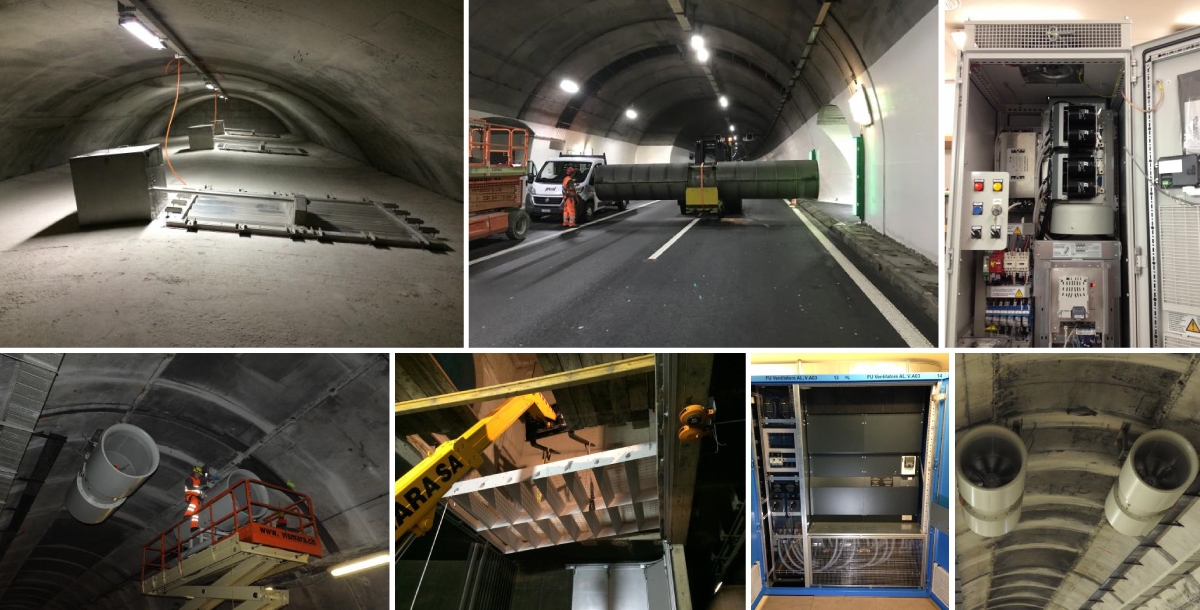Ventilation systems play an essential role in the maintenance of air quality and safety standards in various environments. From in-home ventilation to the ventilation of workplaces and critical infrastructures like tunnels - implementing effective ventilation systems is critical for the health and safety of users and workers.
Premel is one of the leading engineering and industrial automation solutions and general electromechanical equipment suppliers on the continent. Delivering an extensive range of complete engineering solutions for critical industries, Premel excels at providing industrial and technological successes for global companies.
With extensive experience in the design, manufacture, and installation of tunnel ventilation systems - Premel knows how to lead successful projects from initial assessment to ongoing maintenance.
Keep reading to find out all about mechanical ventilation systems, why they’re essential, and how Premel can deliver on projects of all sizes.
What is a mechanical ventilation system?
Mechanical ventilation systems are smart engineering solutions designed to dilute the concentration of air pollutants resulting from regular tunnel operation and vehicle emissions such as carbon monoxide (CO), nitrogen oxides (NOx) and soot to ensure adequate air quality for users.
Just as important is their role in controlling and minimising the spread of a fire in tunnels. The ventilation system is designed to provide enough velocity to control and direct the spread of smoke if a fire occurs.
Tunnel ventilation systems are process automation and engineering solutions that are uniquely configured depending on key factors such as tunnel length, gradient, traffic direction, flow rates, fire size, and so on.
Different ventilation systems are more suitable for certain tunnels, such as longitudinal, semi or fully transverse ventilation systems. Along with being one of the leading industrial equipment suppliers in Europe, the team of trained engineers and technicians at Premel are experts in assessing, designing, and building the most effective ventilation systems for different types of tunnels.
Why is ventilation required in tunnels?
For those wondering how to build a tunnel, it’s important to remember that ventilation systems play a critical role in safety performance and creating a comfortable environment for passengers as they travel through and maintenance workers as they carry out vital works. For this reason, ventilation systems are of utmost importance, much in the same way that emergency power systems are essential for ensuring the continuation of critical processes in case of a disaster.
Civil engineering maintenance carried out in tunnels often generates harmful fumes and dust that surpass levels outlined in current legislation. A lack of adequate ventilation and monitoring may result in workers being exposed to dangerous contaminants that can cause adverse effects to their health, wellbeing, and overall lifespan. These hazards can be generated from various causes, including exhaust gases from engines or cutting processes, but can be minimised with the right ventilation system.
Is tunnel ventilation a legal requirement?
It’s important to consider whether tunnel ventilation is required under regulatory legislation. Short tunnels, defined as being less than 500m in length, generally do not require ventilation as this is provided by natural airflow within the tunnel.
However, longer tunnels typically require mechanical ventilation, but this will depend on a number of variables such as traffic flow, vehicle type, vertical gradient, number of lanes, and so on. Premel can advise on the legal implications of tunnel ventilation.
How sustainable is tunnel ventilation?
Historically, tunnel ventilation requires a large amount of power to function. However, there is increasing effort to implement sustainability initiatives into tunnel ventilation design, assembly, and operation.
The pressing need to reduce energy consumption across industries, minimise costs, and improve accessibility to critical infrastructure equipment is driving the increased application of these sustainability concepts to industrial engineering solutions.

Companies such as Premel are adopting a robust approach to ensuring the complete engineering solutions they provide are sustainable. This is achieved through consideration of the social, economic, and environmental impacts of the tunnel’s lifecycle - from design to construction.
Statutory requirements and technical specifications must be considered when executing tunnel ventilation systems. It’s true that initial design has a significant impact on overall sustainability, but improvements can be made by ensuring the use of innovative technology and environmentally-friendly solutions.
Discover sustainable ventilation systems from Premel
Premel develops advanced technical solutions to facilitate the ventilation and safety of road tunnels. For 20 years, Premel has delivered the supply, assembly, and maintenance of sanitary and emergency sustainable ventilation systems for highways in the Ticino region of southern Switzerland.
If you’re not sure where to start when it comes to how to build a ventilation system or you have questions such as “which sensors are used to measure air quality index?”, you’ll be relieved to know that Premel provides comprehensive assistance for all kinds of industrial automation and engineering projects. What’s more, Premel meets ISO 9001 standards and ensures compliance with best quality policy, safety, and environmental guidelines to guarantee the quality of all its applied engineering solutions.

From initial evaluation of location, to system planning and component testing - Premel can offer expert insight while undertaking projects of all sizes. Not only does Premel provide ventilation systems, they also offer various other electromechanical equipment related to the operation and maintenance of road tunnels such as tunnel lighting, accelerators, fume extraction hoods, fire doors and walls, and more. With a highly qualified after-sales team at your service, Premel clients can rest assured that the long-term maintenance of their solutions are guaranteed.
Premel has been supplying global companies with process automation and engineering solutions for decades, which has allowed the company to nurture a reputation as a trusted provider of tailored engineering solutions across Europe and the world.
Contact Premel to learn more about mechanical ventilation systems and the other products and services they have to offer.
